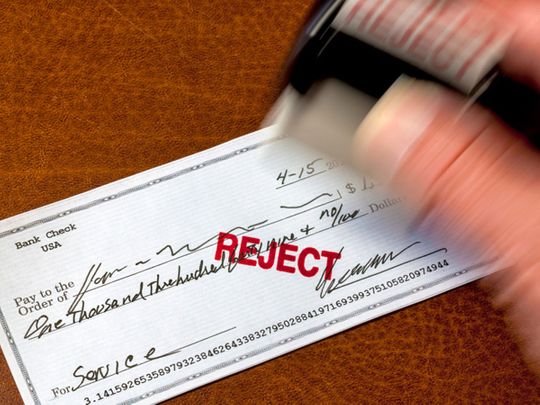
Abu Dhabi: Saudi authorities have named and several bad cheque issuers. The offenders had their names, ID card numbers as well as their prison terms and fines published in local media at the offenders’ expense.
Under Saudi law, anyone convicted of doing so is liable to be imprisoned for up to three years and face a fine of up to SR50,000. If the offence is repeated within three years, the maximum period of imprisonment increases to five years and the maximum fine to SR100,000.
The law also authorises publication of offenders’ names, provided that the court specifies how this may occur.
Saudi law deals strictly with anyone who writes a cheque without having sufficient funds in their bank account to cover it, said Dimah Talal Alsharif, a Saudi legal consultant, and a member of the International Association of Lawyers.
Widespread misuse
According to Ministry of Justice figures, there were about 18,700 cases in 2018 of enforcement proceedings related to bounced cheques, mainly because of insufficient funds. This suggests that the issue is so widespread that the authorities must deal with it more rigorously.
Banks may dishonour a cheque, refusing to cash it, for several reasons; there may be insufficient funds in the drawer’s account, the signature on the cheque may not match the signature the bank has on record for the drawer, or there may be an error with the date, Alsharif said.
In bad faith
She said these circumstances can happen accidentally, in which case no crime has been committed. There must be criminal intent. For example, if a drawer issues a cheque while having insufficient funds, but makes it clear to the beneficiary that the required funds will be deposited later and specifies when this will happen, then there is no evidence of bad faith.
However, Alsharif argued, writing a bad cheque may be intentional. People have been known to write a cheque while having sufficient funds to cover it, but then withdraw the funds before the cheque is deposited; to issue a cheque and instruct their bank not to cash it; or even deliberately sign a cheque incorrectly, knowing that their bank will not honour it.








